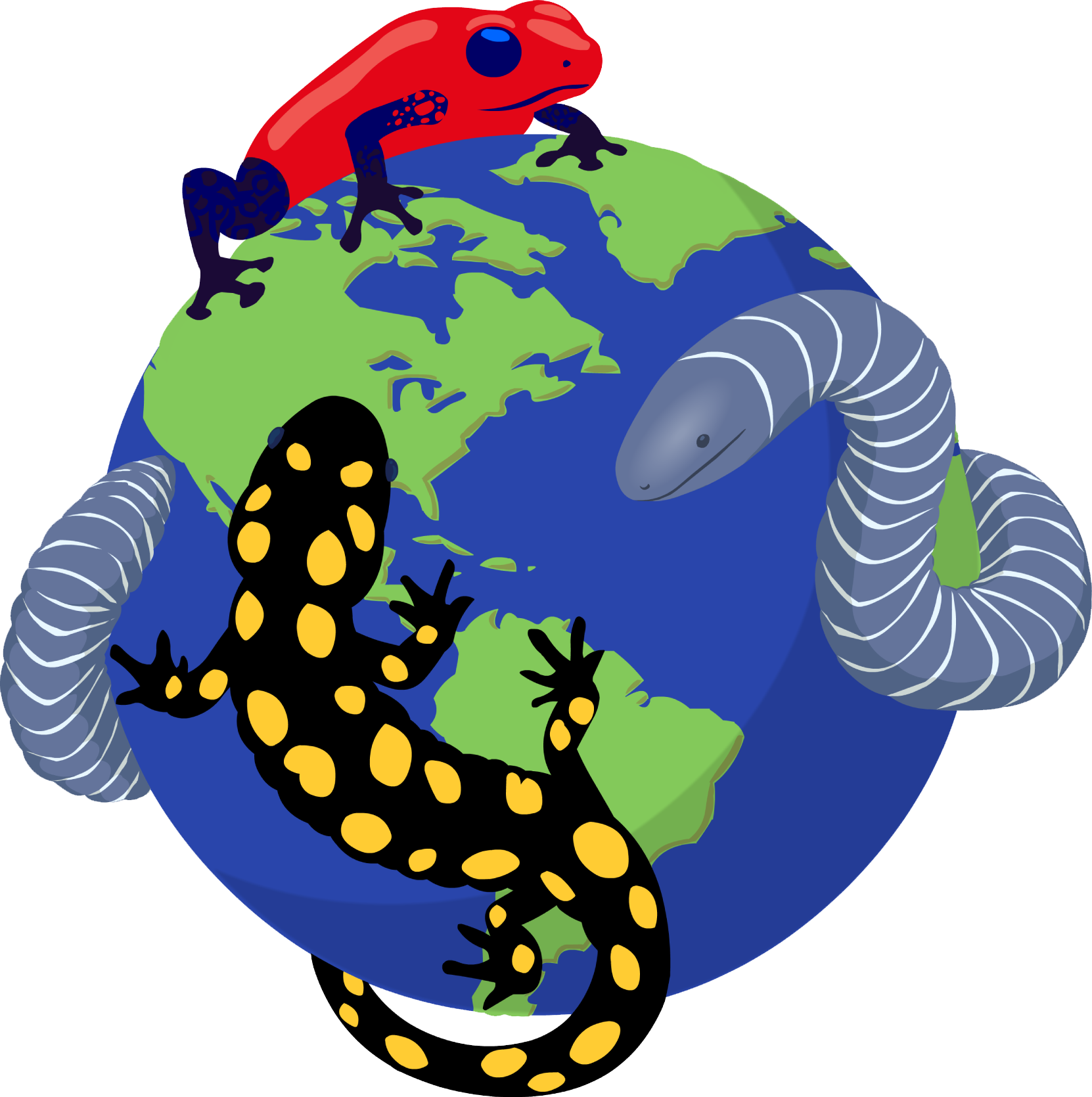|
Leptopelis bocagii (Günther, 1865)
Bocage's Tree Frog | family: Arthroleptidae genus: Leptopelis |
 © 2008 Arne Schiotz (1 of 6) |
|
|
|
Description Distribution and Habitat Country distribution from AmphibiaWeb's database: Angola, Burundi, Congo, the Democratic Republic of the, Ethiopia, Kenya, Malawi, Mozambique, Namibia, Rwanda, South Africa, Tanzania, United Republic of, Uganda, Zambia, Zimbabwe
Life History, Abundance, Activity, and Special Behaviors Largen (1977) describes the call as a low "cluck", distinctly deeper and quieter that the voice of L. gramineus. Schiøtz (1975) has described the voice as an unmelodic, slow "waab", sometimes two in succession. Although this species usually calls from the ground there are a few reports of males calling from low vegetation. This has been reported by Poynton and Broadley (1987) from Zimbabwe, and again in the case of the aberrant green Leptopelis from Kakamega, Kenya, described above. Comments The name L. bocagii is used for a ground-dwelling, fossorial Leptopelis from the eastern and southern savannas and grasslands. It is probable that this name covers more than one species, and all students of this form seem to believe that several cryptic species are involved. One form (L. parbocagii) has recently been separated from the complex. Several subspecies have been described, but our understanding of the geographical and non-geographical variation is too incomplete to recognise subspecies at this stage, either within this form or within the bewildering complex of savanna-living Leptopelis in the southern part of Africa. In Kakamega Forest, Kenya, a peculiar Leptopelis occurs in clearings in the forest. In morphology it seems identical to L. bocagii but the ground colour is green, not brown. It cannot be decided whether this form deserves recognition as a separate subspecies or species. Amiet (2004) reports on a Leptopelis cf. bocagii from a number of localities in northern Cameroun. His reluctance to refer his specimens firmly to L. bocagii Günther derives from his doubt about the identity of Günther's type specimen, now lost, moreover that several species may be involved in the complex, including L. mossambicus and L. parbocagii. The call, a two-syllable "wa-la", and the calling position on branches seem, however, to distinguish L. mossambicus from the group. Amiet (2004) provides a sonogram and photos for L. cf. bocagii. This account was taken from "Treefrogs of Africa" by Arne Schiøtz with kind permission from Edition Chimaira publishers, Frankfurt am Main. Updated by A. Schiøtz, 2008.
References
Amiet, J.-L. (2004). ''A propos de deux Leptopelis nouveaux pour la faune du Cameroun.'' Alytes, 21(3-4), 111-170. Largen, M. J. (1977). ''The status of the genus Leptopelis (Amphibia Anura Hyperoliidae) in Ethiopia, including descriptions of two new species.'' Monitore Zoologico Italiano, N.S. Supplemento, 9, 85-136. Poynton, J. C. and Broadley, D. G. (1987). ''Amphibia Zambesiaca 3. Rhacophoridae and Hyperoliidae.'' Annals of the Natal Museum, 28, 161-229. Schiøtz, A. (1975). The Treefrogs of Eastern Africa. Steenstrupia, Copenhagen. Schiøtz, A. (1999). Treefrogs of Africa. Edition Chimaira, Frankfurt am Main. Originally submitted by: Arne Schiøtz (first posted 2001-02-07) Edited by: Kellie Whittaker (2008-09-30) Species Account Citation: AmphibiaWeb 2008 Leptopelis bocagii: Bocage's Tree Frog <https://amphibiaweb.org/species/3637> University of California, Berkeley, CA, USA. Accessed May 25, 2025.
Feedback or comments about this page.
Citation: AmphibiaWeb. 2025. <https://amphibiaweb.org> University of California, Berkeley, CA, USA. Accessed 25 May 2025. AmphibiaWeb's policy on data use. |



 Map of Life
Map of Life